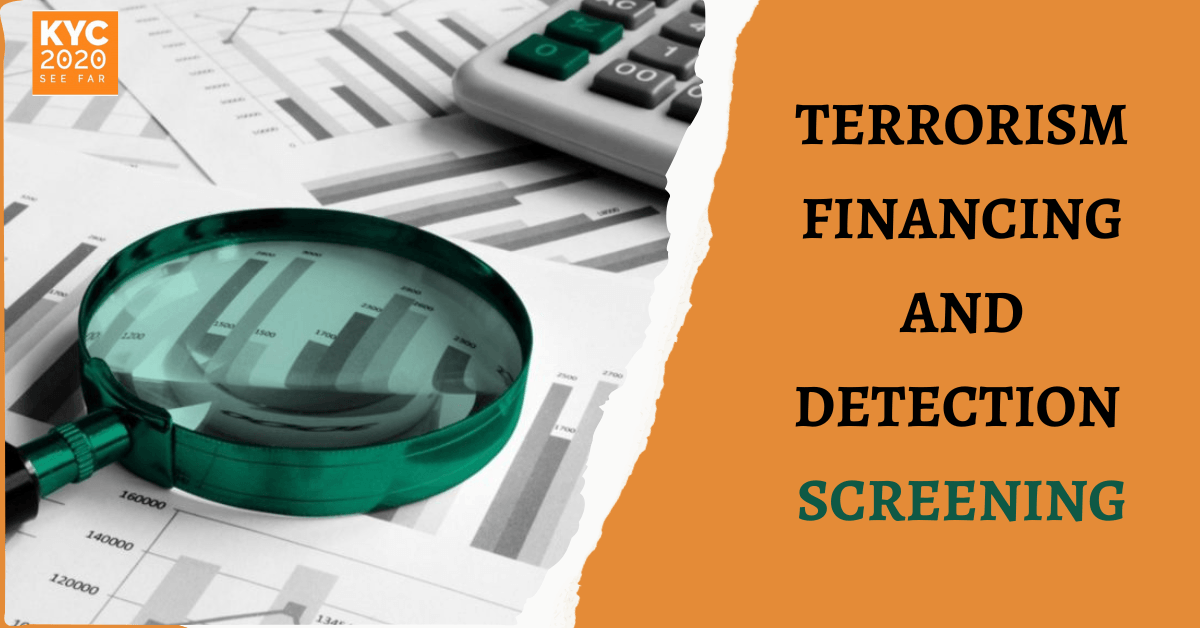What are the core AML compliance solutions credit unions need to be AML/CFT compliant and still maintain their competitive advantage in the years to come?
As credit unions continue to grapple with a growing mountain of costly and complex financial regulations as well as an evolving digital ecosystem, they have been ramping up their investment in regulatory technology (RegTech) solutions.
Determining which AML compliance solutions make the most sense for a specific credit union, however, can be a challenge. Over the next four years, the global RegTech industry is expected to reach $16 billion. While there are many established players already in the market, this growth is in large part driven by a rising wave of new RegTech innovators. These companies are harnessing advanced technologies to address a wide range of issues in addition to AML compliance, such as data and network security, user experience, the increasing demand for faster digital transactions, affordability and ease of integration.
RegTech has become mission critical among credit unions seeking support in their AML/CFT compliance efforts. Earlier in this series, we examined the ways in which modern Credit Unions need to rethink their approach to AML/CFT compliance as well as the unique challenges they will face in the process. The distinct path awaiting Credit Unions towards an accurate, cost-effective, and nimble AML compliance regime requires that they look beyond many of the established vendors.
Credit unions do not operate in the same way as banks do. They have their own unique structure, mission, and set of needs. RegTech platforms that prioritize affordability, accuracy, customization, support, and ease of use are better suited to these financial institutions.
Heading into the future, partnerships with RegTech vendors can help to make credit unions more adaptable and competitive in a changing financial services landscape. Many small and mid-sized credit unions today face two options: either adapt to changes in regulation, technology, and financial market trends or be absorbed by a bigger financial institution. Though the Covid-19 pandemic initially slowed down M&A activity among credit unions, all signs indicate that M&As will increase in 2021.
Having smart, customized AML compliance solutions in place is a necessary growth strategy for today’s credit unions. In fact, it could end up being one of the most significant factors in the fundamental viability of the credit union model going forward.
In this final article of our series on AML compliance among credit unions, we will look at three core RegTech solutions that are putting these financial institutions back on the financial services playing field.
3 Smart AML Compliance Solutions for Today’s Credit Unions
A solid AML/CFT credit union compliance program will depend on some combination of three core services:
Moving from Big Data to Smart Data
AML compliance begins with screening clients as part of customer due diligence (CDD). A good sanction, PEP, and adverse media screening program begins with great watchlist data.
Most AML compliance data vendors build and promote BIG DATA. However, when it comes to a given database, bigger isn’t necessarily better. The problem with big data is that it is often full of junk and bloated with duplicates. This unnecessary, incomplete, or unwanted information creates added work for AML compliance staff who must manually reconcile and clear the excessive false positives. Financial institutions typically end up over-engineering their screening systems to deal with junk data to strike a balance between an “acceptable” number of false positives with their efforts to avoid missing true positives.
The beginning of modern KYC and sanctions screenings still starts with sanctions lists, but now extends to other watchlist data, including PEP (politically exposed persons), RCA (relatives and close associates of politicians), HIO, Regulatory Authority, Negative News, and more. These lists are constantly evolving, while sanctions are becoming more complex and the number of regulatory bodies are growing. For credit unions working with limited resources, this big and constantly changing data pool must be augmented and transformed by SMART data systems prior to consumption for screening. SMART DATA leads to INTELLIGENT SCREENING. Solving the data problem is the most effective way to enhance a credit union’s AML compliance program.
For this reason, KYC2020 developed VisionIQ, the most comprehensive, advanced, and affordable watchlist database on the market with access to over 1000 watchlists and over 10,000 automatically updated news sources from more than 200 countries. The VisionIQ data advantage is not just that the data is comprehensive so that a credit union never misses a relevant true positive, but that we spend a great deal of time to make it SMART so that our clients are not dealing with endless false positives.
For a credit union to be served the right data to suit their risk profile, VisionIQ is powered by advanced technologies, such as artificial intelligence (AI) and natural language processing (NLP).
Data is structured and organized to make it easy to selectively group watchlists for different risk profiles and screening criteria. Data is de-duplicated and cross-linked across watchlists to better resolve the data into personas. Data, especially PEP and RCA data, is further augmented by name and entity recognition in relevant adverse media. Personas are also tagged with aliases, common name variants and misspellings to reduce fuzzy search errors and false positives. Plus, we have added machine learning (ML) to the mix which makes the data, and by extension the AI-based compliance system smarter over time.
Best of all, we have priced VisionIQ with smaller financial institutions in mind. Data does not have to be so expensive, and credit unions do not have to compromise quality for good data.
Smart Sanction Screening Solutions
Sanction screening is an integral part of KYC and AML/CFT compliance. Sanction screening systems are designed to protect financial institutions from high-risk customers and help to ensure the integrity of the financial services sector. But it does not stop with just sanction screening. Today, financial institutions must screen for PEP, criminal, and even negative news.
Aside from the risk of regulatory fines, credit unions must think about their reputation. Nothing will ruin a credit union’s reputation faster than being tied to a rogue member or an employee who has generated negative publicity. Where a financial crime was committed, the financial institution’s ties may be made public, creating a reputational crisis. The credit union may be deemed guilty by association, with members questioning the integrity of the credit union itself even if it has done nothing wrong.
For example, corruption among public employees, such as politicians, government officials and their associates is on the rise. As part of their customer due diligence obligations, banks and financial institutions must establish and report whether their clients are Politically Exposed Persons (PEP) and at risk of being involved in financial crimes, like money laundering, or are associated with a predicate offense as reported in the news.
A great KYC sanction screening solution for CDD begins with an exhaustive watchlists and negative news database. However, even the best compilation of data and news sources is useless without an intelligent search and scoring engine that works to minimize False Positives, while helping to ensure that True Positives are discovered.
KYC2020 SmartScan is the best in class sanction, PEP and negative news screening and scoring service that integrates automation, AI and NLP for big and small credit unions alike with flexible price plans to suite any budget.
SmartScan gives credit unions the smarts and sophistication of an enterprise sanction screening solution while avoiding all the cost and complexity. It is available as SaaS solution or OnPrem deployment. Plus, we have developed an extensive API Library for easy integration with in-house systems and workflows.
From Screening to Decisioning
Despite all the advances in technology, sanction screening still requires a significant amount of manual intervention that can dramatically slow down and disrupt the customer verification and on-boarding processes. There are generally four main hurdles to overcome:
- False Positives. The best systems still yield 5-7% false positives that must be cleared manually by a compliance officer.
- Record keeping. Compliance best practices require the storing and organizing of auditable documentation for minimum of 5 years. The administrative effort and resources needed to fulfill this requirement are high, costly, and can lead to expensive inaccuracies.
- Long On-boarding Times. Sanction screening plagued by over-engineered systems, depends even more on manual interventions that are not only slower, but prone to mistakes and discrepancies. This results in a slow customer verification and on-boarding process.
- Ongoing Monitoring. Constantly changing data means regular and recurring screening of customers. Depending on your risk-based approach, this could mean quarterly, weekly, or even daily screening. A poor screening system invariably leads to an inaccurate and ineffective batch monitoring program.
Traditional sanction screening solutions are designed to filter a set of watchlists. The search results are then manually exported for review. To stay relevant and competitive, credit unions must move from screening tools built around integrated manual workflows to stand-alone decisioning systems that automatically clear false positives to yield actionable screening decisions. All this in near real-time, with a human readable and audit friendly decision proof-of-work file, and without requiring manual effort.
Manual-centric AML compliance systems are by nature reactive. When processes are dependent on manually clearing a mountain of false positives and routinely tie up a large amount of resources, credit union leaders can feel like they are never in control.
On the other hand, a smart, automated sanction screening decisioning system can render 95% of all verification decisions automatically within a 60-second response time and a low decision error rate. For records that require manual screening, they can be sent within minutes to compliance officers, who should have all the info they need to take immediate action.
With DecisionIQ, we put credit union AML compliance teams back in the driver’s seat. We take a risk-based approach coupled with the best watchlist data and latest technologies in search, scoring, AI, NLP, and decision systems. Automated clearing dramatically speeds up on-boarding while reducing wasteful manual work. Each decision is accompanied by a rational proof-of-work file that is securely stored. All case management and AML officer reviews can be done electronically, and best of all, our highly intelligent monitoring system actively tracks watchlist data changes, automatically re-scans impacted customer records, and only send an alert when appropriate. This means no more manual redundant reprocessing of customer batch files in the name of ongoing monitoring!
No Need to Go it Alone
Credit unions do not have to figure out the best AML compliance system on their own, nor should they resort to requiring staff to multi-task between their regular roles and AML/CFT compliance efforts. Our qualified CAMS™ and VSkills certified specialists have experience working with credit unions and can help with a range of compliance needs, from revamping an AML system or tailoring our products to fit established workflows.
In Closing…
Smart data and automated decisioning promise to be a fundamental part of AML compliance among all financial institutions in the future. Credit unions, however, require smart AML compliance solutions that suit their unique structure, workflow, transactional needs and budget. Such systems are more than just a way for credit unions to stay AML compliant. They are necessary growth strategy that can keep them competitive in the years ahead.
Want to learn more about how KYC2020 solutions can help your financial institution? Contact us here or send us an email at [email protected].
KYC2020 is also not alone in the world of RegTech innovation. To find out more about other 2021 innovators, check out the RegTech100 list.
.







